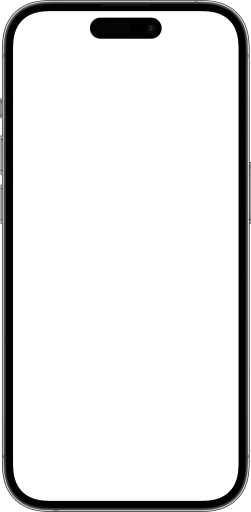Aug 13, 2024
Unveiling the Smoke and Mirrors: Common Scams in Mobile App Development
In the glittering world of mobile app development, not everything is as it seems. While many companies promise the moon and stars, some are peddling little more than smoke and mirrors. Let's pull back the curtain on some common scams in the industry, particularly those that dazzle you with flashy front-ends while hiding the complex reality of back-end development.
The Front-End Facade
Picture this: you're browsing through a mobile app development company's portfolio. The apps look sleek, the interfaces are smooth, and everything seems perfect. You're sold on the dream they're selling. But here's the catch – what you're seeing is often just the tip of the iceberg.
Many unscrupulous companies showcase beautiful front-end designs as if they're fully functional apps. They'll wow you with stunning user interfaces, seamless animations, and attractive layouts. It's like being shown a sports car with a gleaming paint job, but no engine under the hood.
What these flashy presentations often conceal is the complex world of back-end development. The back-end is the powerhouse of any app – it's where data is processed, stored, and managed. It's the brain behind the beauty, and without it, you essentially have a pretty but useless shell.
The Hidden Back-End Reality
Here's where the real scam often lies. After you've been lured in by the front-end showcase, you might discover that the actual development of the back-end is an entirely separate – and often more expensive – process. Some companies intentionally downplay or even omit discussing the back-end requirements during initial consultations.
This bait-and-switch tactic can leave you with unexpected costs and timelines. You thought you were getting a fully functional app, but in reality, you're only halfway there. It's like ordering a complete meal and receiving only the appetizer – tasty, but far from satisfying.
The Resource Illusion
Another common pitfall in the mobile app development world is the illusion of dedicated resources. Many companies promise to assign specific developers or teams to your project. They'll tout the expertise of their staff and assure you of their undivided attention to your app.
However, the reality can be starkly different. In many cases, these "dedicated" resources are spread thin across multiple projects. Your app might be getting only a fraction of a developer's time and attention, leading to delays, quality issues, and a lack of focus on your specific needs.
This practice is akin to overbooking in the airline industry. The company promises a seat to everyone, hoping that not all customers will show up. In app development, they're betting that not all projects will demand attention simultaneously – a risky gamble with your time and money.
The Transparency Gap
One of the biggest red flags in these scenarios is a lack of transparency. Reputable development companies will be upfront about the entire process, including both front-end and back-end development needs. They'll provide clear timelines, detailed cost breakdowns, and realistic expectations about resource allocation.
Scam artists, on the other hand, thrive in ambiguity. They might use technical jargon to confuse you or gloss over important details. They're banking on your lack of technical knowledge to pull the wool over your eyes.
Protecting Yourself
So, how can you protect yourself from these common scams? Here are a few tips:
Ask detailed questions about both front-end and back-end development. Don't let flashy designs distract you from the nuts and bolts of how the app will actually function.
Request a comprehensive project plan that includes all aspects of development, from design to deployment.
Inquire about the specific resources that will be allocated to your project. Ask for clarity on whether these resources are truly dedicated or shared.
Seek references and case studies of complete, functional apps the company has developed – not just designs.
Consider working with companies that offer transparent, iterative development processes where you can see progress at each stage.
If possible, consult with a technical advisor who can help you navigate the complexities of app development proposals.
Remember, genuine mobile app development is a complex, multifaceted process. It requires skills in design, front-end development, back-end programming, database management, and more. A reputable company will be honest about these requirements and work with you to develop a comprehensive plan that addresses all aspects of your app.
While it's tempting to be swayed by beautiful designs and promises of quick, cheap development, the reality is that quality app development requires time, expertise, and genuine dedication. By staying informed and vigilant, you can navigate through the smoke and mirrors to find partners who will truly bring your app vision to life – both on the surface and behind the scenes.
In the end, the key to successful app development lies in partnerships built on honesty, transparency, and a shared commitment to creating not just a pretty interface, but a fully functional, robust application that serves its purpose effectively. Don't let the allure of a shiny front-end blind you to the critical importance of solid, well-developed back-end functionality. Your app – and your users – deserve nothing less than the real deal.
Aug 30, 2024
Cleaning Up the Industry: The Power of Starting Your Own Two-Sided Marketplace
Aug 29, 2024
Harnessing AI: Building Mobile App Features with Claude AI and ChatGPT
Aug 28, 2024
Serverless vs. Standard: The Mobile App Development Showdown
See all posts






